Romania offers many opportunities, and Australia is eager to strengthen both parliamentary and economic ties with our country, said Milton Dick, Speaker of the House of Representatives of the Australian Parliament and the highest-ranking Australian official to visit Romania in over 50 years of bilateral relations, in an interview with Agerpres.
Amid modest bilateral trade, he highlighted new opportunities for economic cooperation, particularly in the Black Sea region through the development of the Port of Constanta, as well as in other areas such as mineral resources.
The Speaker of the House of Representatives in Canberra announced the creation of a new Romania-Australia Parliamentary Friendship Group and discussed the possibility of Australia opening a diplomatic mission in Bucharest, noting that the Australian ambassador to Greece is currently accredited for relations with Romania.
The Australian official expressed gratitude for Romania's support of the trade agreement between Australia and the European Union and thanked the country for its role in evacuating numerous Australians at the outset of the war in Ukraine, highlighting "the incredible support Romania has provided to Ukraine through 23 aid packages." He added that Australia is keen to learn more about Romania's traditions and culture, noting that between 30,000 and 50,000 Romanians now call Australia home.
AGERPRES: Hello and welcome to Romania. I'm very happy that I have the opportunity of an interview with the Speaker of the House of Representatives of Australia and I thank you for this interview for the Romanian National News Agency. In the history of over 50 years of bilateral relations, yours is the highest level visit of an Australian official to Romania up to the present moment. So in this context, how do you assess this visit of a delegation of Australia's House of Representatives you are heading? Could you kindly highlight the most important moments for us?
Milton Dick: Well, it's a great honour for Australia to be represented here in Romania and I am the first Australian speaker ever, in our nation's history, to visit this part of Europe and we've done so deliberately because of the strong links between Romania and Australia. Over almost 60 years our countries have had very strong diplomatic links. And it's long overdue that a parliamentary delegation was to visit Romania.
This delegation is making history for a number of reasons. We wanted to make sure that we learnt about some of the traditions and culture of Romania, because 30,000 to 50,000 Romanians call Australia home. But also to understand a little more about the democracy and some of the challenges that your parliament and parliamentarians have faced, particularly in the recent elections. We know there was foreign interference and we've been following that very carefully.
Australia and Romania are very like-minded countries and that's why I was so pleased through the work of our Ambassador and our officials to make sure that I visited Romania with the first Australian parliamentary delegation.
AGERPRES: Thank you. Our President Nicusor Dan said that the talks with you focused on expanding the cooperation between Romania and Australia in the areas of security, energy and hybrid threats, including stimulating Australian investment in our country. What concrete projects did you discuss?
Milton Dick: We covered a range of projects and I was deeply honoured to be received by the President to have very constructive dialogue.
The trade between our nations is modest. It's around half a billion dollars. We see there is area for cooperation, particularly in the Black Sea, the Constanta Port redevelopment where our ambassador and alongside officials from Australia have already had productive discussions.
We know that Romania has a lot of opportunities and Australia is very keen to develop parliamentary links but also economic links as well. We know more than ever in these difficult times two-way trade is important and that's why Australia is working so hard for an EU trade agreement and we recognise Romania's support. And we do see, as a result of this visit, a lot of opportunities and more discussions to take place.
AGERPRES: But also maybe a development on the diplomacy sphere. And the opening of an Australian diplomatic representation or office in Bucharest was another topic on the agenda of talks with the Romanian authorities. What can you tell us on this subject?
Milton Dick: Well I understand that's an issue and that's a decision for government but we are here on a parliamentary delegation and I'll certainly be taking that feedback towards our Foreign Minister and our Department of Foreign Affairs and Trade, but what I can confirm is that we announced formally in Bucharest a new parliamentary friendship group between Romania and Australia where we will see parliamentarians from both the House of Representatives and Senate focusing on Romania and building stronger relationships through our parliamentary links, but also through our diplomatic representations, which we know your ambassador in Australia is very active. To build on these visits is very, very important and to expand opportunities through our parliamentary links, but also through our economic links as well.
AGERPRES: As you mentioned about being like-minded, Romania as a EU member state and Australia are like-minded states regarding a rules-based world order. How do you think we can better cooperate in order to contribute to a more secure international environment?
Milton Dick: Well, I think having parliamentary exchanges is the first step in that, and that's why I took the leadership in bringing a parliamentary delegation, and I stress it as a bipartisan delegation, representing all sides of our parliament here in Romania. I think the work that Australia does, and I'm heavily involved with the Inter-Parliamentary Union, the oldest democracy organisation in the world, headquarters in Geneva. Following on from our visit here we'll be visiting and attending the IPU and I know Australia and Romania work closely together in the IPU so I think those forums are the ideal opportunities for democracy to be supported but also further parliamentary exchange to occur. So building on the links that we have through other international forums as well, more than ever, like-minded countries who believe in the rule of law and believe in democracy must stick together.
AGERPRES: Like a multilateral approach. I understand. You mentioned the EU-Australia free trade agreement. Where are you actually at in the negotiation process? Is there a horizon for concluding the negotiations?
Milton Dick: Well, that work will be continuing. Our Prime Minister has had very successful meetings with the EU, and so has, as recently as the 25th of September, our Trade Minister, Senator Don Farrell, met with the EU Commissioner for Trade and Economic Security at the ASEAN Economics Ministers' meeting. And so there's that work we'll be continuing on. There's still a bit of work to be done. But as I stressed earlier in remarks, more than ever, high-level meetings are one thing, but recognising the importance of two-way trade in uncertain times is more important than ever. And we recognise Romania's support for Australia's EU trade agreement, and we're looking forward to those discussions continuing. And I'm sure and I'm confident right from our Prime Minister to our Trade Minister, those discussions will continue.
AGERPRES: Now, going back to security, we've seen instances, as you mentioned a little bit, of both in Romania and the Republic of Moldova of foreign interference, including in elections. And I'm curious about the Australian experience. Has Australia dealt with similar experiences? And how is your country seeking to safeguard parliamentary elections?
Milton Dick: Well, we are very lucky in Australia that we have a strong democratic tradition and our elections are overseen by the Australian Electoral Commission, one of the most trusted institutions in the world. Australia is only one of the 10th oldest democracies in the world and we're not a very old nation. We are very proud of our democratic institutions. The Electoral Integrity Assistance Taskforce was established in Australia in 2019 to look into matters of interference. Before I became the Speaker for a number of terms, I served on the Joint Standing Committee on Electoral Matters. And that is the committee of the Parliament that oversees our elections. And in fact, tomorrow we'll begin our first official hearings into our elections, which were held five months ago. So Australia is very proud of our electoral institutions, but just like Romania, we have challenges and we need to learn from each other. And the discussions that we've had from the President to the Prime Minister to the Vice Prime Minister with Defence and also the highlight of the visit, visiting my counterparts, the President of the Deputies and the President of Senate, all focused on the learnings that we have seen in your country and how we may apply them to our democracy. More than ever, democracy is under pressure across the world. Countries like Romania and Australia must remain vigilant, and this visit has even brought our countries closer and, more importantly, has strengthened our commitment to democracy.
AGERPRES: Thank you very much. And I think the whole world is aware that Russia's invasion of Ukraine has brought conflict to Romania's and EU's borders. And if we look on a map, we see that Australia seems quite far away, but actually the world has become smaller and smaller. So what lessons do you think Australia is drawing from this and how can Australia support Ukraine?
Milton Dick: Well, Australia recognises the importance of support for Ukraine, the illegal and immoral invasion by Russia, and I'm very proud that our government, in a bipartisan way, has committed 1.5 billion dollars worth of support, including 1.3 billion dollars worth of military support. And Australians are very clear that they know Romania played a critical role in evacuating many Australians at the beginning of the war. And we're incredibly grateful for the kindness and generosity of Romania, particularly for women and small children. So this is a war that Australia stands proudly on the side of Ukraine with. We recognise the incredible support that Romania has given in that conflict when yourselves have, the country has been impacted by the war so greatly. So we're very proud to recognise that fact, but more importantly to stand on the record where we have supported the rule of law and the fact that the people of Ukraine have suffered greatly.
AGERPRES: Thank you very much. And expanding a little bit on this, how do you see Romania's role in this context, given its position as an essential logistic hub for the reconstruction of Ukraine?
Milton Dick: Well, we understand there is enormous opportunity for investment, but also support for the people of Ukraine through the Port of Constanta and coming back to the opportunities there. We understand the incredible support that Romania has given to Ukraine through 23 packages of support. We understand the demining process as part of the Black Sea process with your alliance that has been ongoing. So there are enormous challenges in this region and that is one of the reasons we also wanted to come, to show solidarity for Romania, to show solidarity for the work that you're doing, but to better understand how we may be able to partner in the future and look for opportunities.
AGERPRES: Have you discussed concrete projects about the Port of Constanta or you're just at an exploratory level?
Milton Dick: Well those discussions will happen at a government level, and as I indicated that our ambassador and Australian officials have already visited there to begin some of those discussions. There are other areas of economic opportunity that I'm keen to report back to Australia. I know our Minister for Resources is keen to look at some mining and mineral opportunities here. We know that our countries are in the same area in those critical mineral spaces. So I think there is quite a lot of work for us to do when we return to Australia for those ongoing discussions to occur. As I said, that is for government to have those discussions with, but I'll certainly be reporting back in a favourable way. Lots of opportunities for our two countries to even further develop economic development.
AGERPRES: Thank you. And now I'd like to focus our discussion more on your country, since also you're the Speaker of the House of Representatives. I'd like now, how is Australia seeking to increase the diversity of its parliamentary representatives, including female First Nations and other minority representation?
Milton Dick: Well, I'm very proud that Australia's parliament currently is the most diverse we've ever had. There is a record number of women serving in the Parliament. In fact in one of our chambers, the Senate, our upper house, more women serve than men, 57%. In the Lower House it's around 43%. Over half of the government is made up of women and half our cabinet are women. We have a female presiding officer in the Senate, our Upper House. We also have a female Governor-General, Her Excellency Sam Mostyn. So women are taking on very senior leadership roles and I think that is a good thing for our nation and for our Parliament. Our Parliament also has a record number of First Nations people serving in the Parliament. It's around nine people that have been elected to both the House and the Senate collectively, but also we've seen a record number people from multicultural backgrounds, people of different faith.
Now my view as an Australian citizen is the more that our Parliament reflects our community the stronger our laws and democracy will be. Australia is one of the most or probably the most successful multicultural nations in the world and we're very proud of that fact. But we know we have to work hard at inclusion and the Parliament reflects the growing diversity in Australia and I think that is an incredibly good thing.
AGERPRES: This representation subject was also a topic of discussion in Romania, were it not really? I'm curious if you discussed with your counterparts about the representativity in our parliament.
Milton Dick: Yeah, we did. We looked at how particularly in Romania there is a number of young people who have been elected to the deputies and to the Senate. In Australia, we can learn from that. We currently have one of the youngest parliamentarians in the world. One of our senators has just turned 21. So we have a long way to go to include more young people being represented in the Parliament and Romania has had a long tradition of young people serving in both the houses. So yeah there's always things you can learn from a country when you're in there. Visiting and seeing for yourself, sitting on the gallery and looking out onto the deputies and to the Senate. I could see a number of women sitting there, I could see people from different backgrounds.
So it was a great experience and a great honour to visit your wonderful Parliament, one of the largest in the world, and it was a honour for me to be the Speaker of the Australian Parliament, meeting with both my counterparts and discussing these issues.
AGERPRES: Thank you. And as we are speaking about young people, I would also like to ask you, how do you assess young Australians' interest in political issues? And can one detect a tendency towards extremism as we have seen a tendency in Europe?
Milton Dick: Yes, Australia is not immune to the rise of some extremism. It's not on a huge level, but we are seeing that in our population, particularly on the issue of migration. What I've learnt from being here is that the similarities are getting closer and closer. We're seeing a rise of populism and the extreme. My commitment to particularly in Australia and across the world is to improve civics education. I had the privilege of visiting the university this morning and speaking and giving a short lecture to university students about civics and democracy and asking questions and hearing their views, young Romanians. I am deeply committed to improving civics education across Australia. I personally have visited... hundreds of schools to teach civics in classrooms across Australia. And a couple of weeks ago, I launched the first National Youth Parliament for Australia, where young people will be given a voice in our Parliament and have the opportunity to discuss ideas.
So democracy, as I've said, is under pressure across the world. As citizens and people in Romania who support democracy, as I know is such a strong element of your country, we need to work together and collaborate to look at opportunities to improve civics education, not just in our own countries, but right across the region. In the Indo-Pacific, where Australia sits, that is also a priority for us, making sure that we are teaching best practice when we are in countries and visiting countries and learning from one another.
AGERPRES: Thank you very much. And if there are any other considerations you would like to share with the Romanian public, please do.
Milton Dick: Well, I just really, from the bottom of my heart, thank the people of Romania for making me and the representatives from Australia so welcome. You know, our countries are very far apart. There's a big ocean between us and lots of land. But I feel a sense of comfort and warmth when I've been here in Romania. And that is because I think of what the people of Romania have gone through over many, many years and their deep commitment to democracy and peace. And I'm really looking forward to the conversations that I've had and the new friends I've made being expanded upon. And as I indicated to the university students and the next generation of leaders, this is my first visit to Romania and it won't be my last because I have fallen in love with the beautiful countryside. I haven't seen a huge amount of the country. I've read and seen and now I've been here in Bucharest. I'm looking forward to exploring and finding out even more about this beautiful country.
AGERPRES: Thank you very much for your time. Thank you so much. I really appreciate it. Thank you.

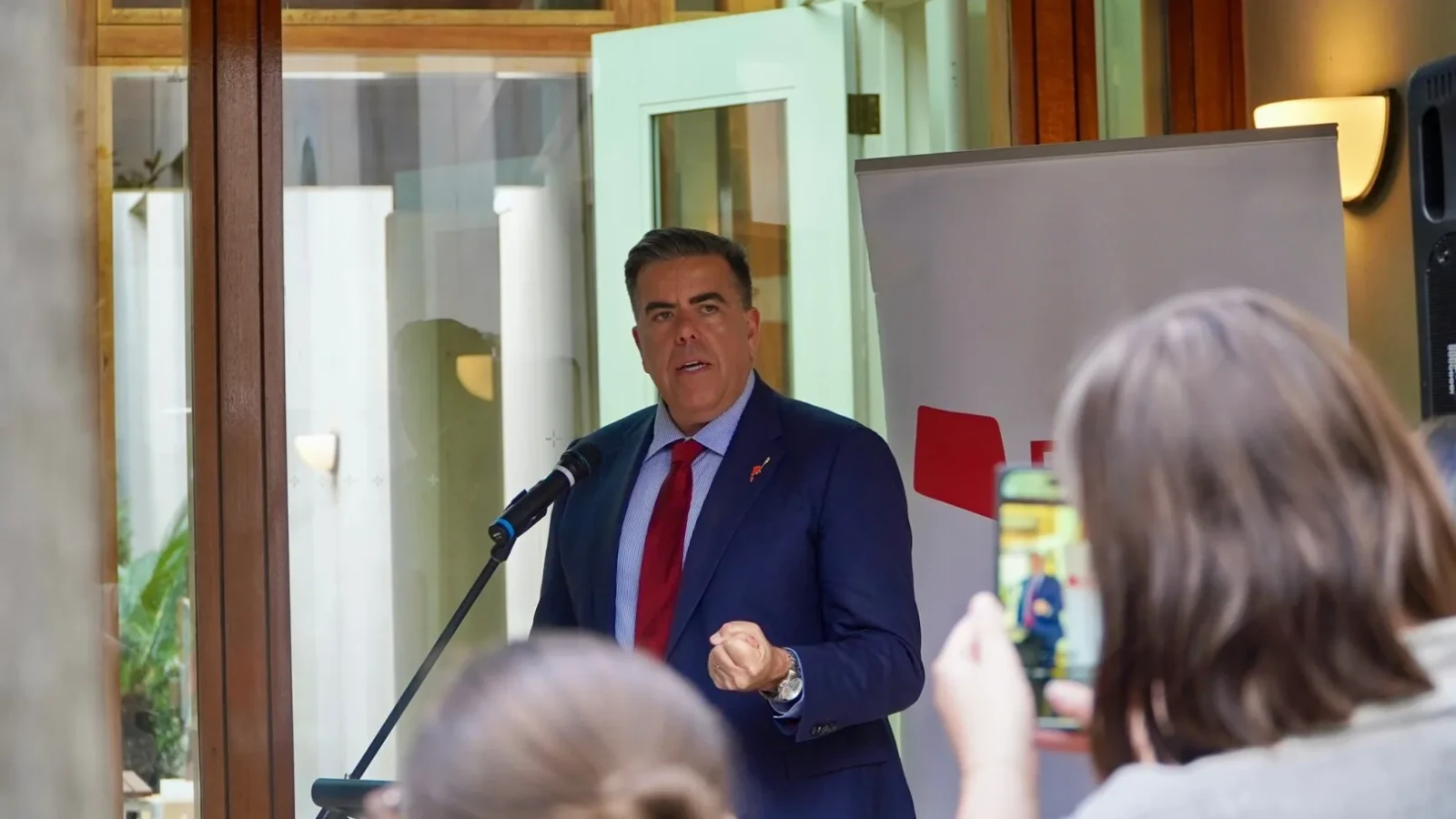



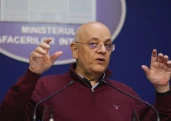
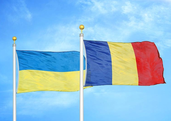

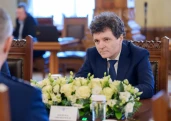
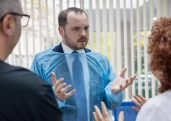


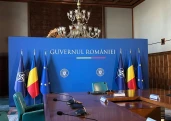
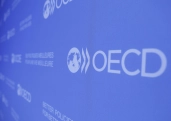
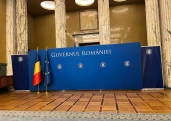

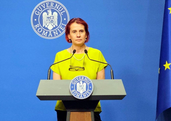





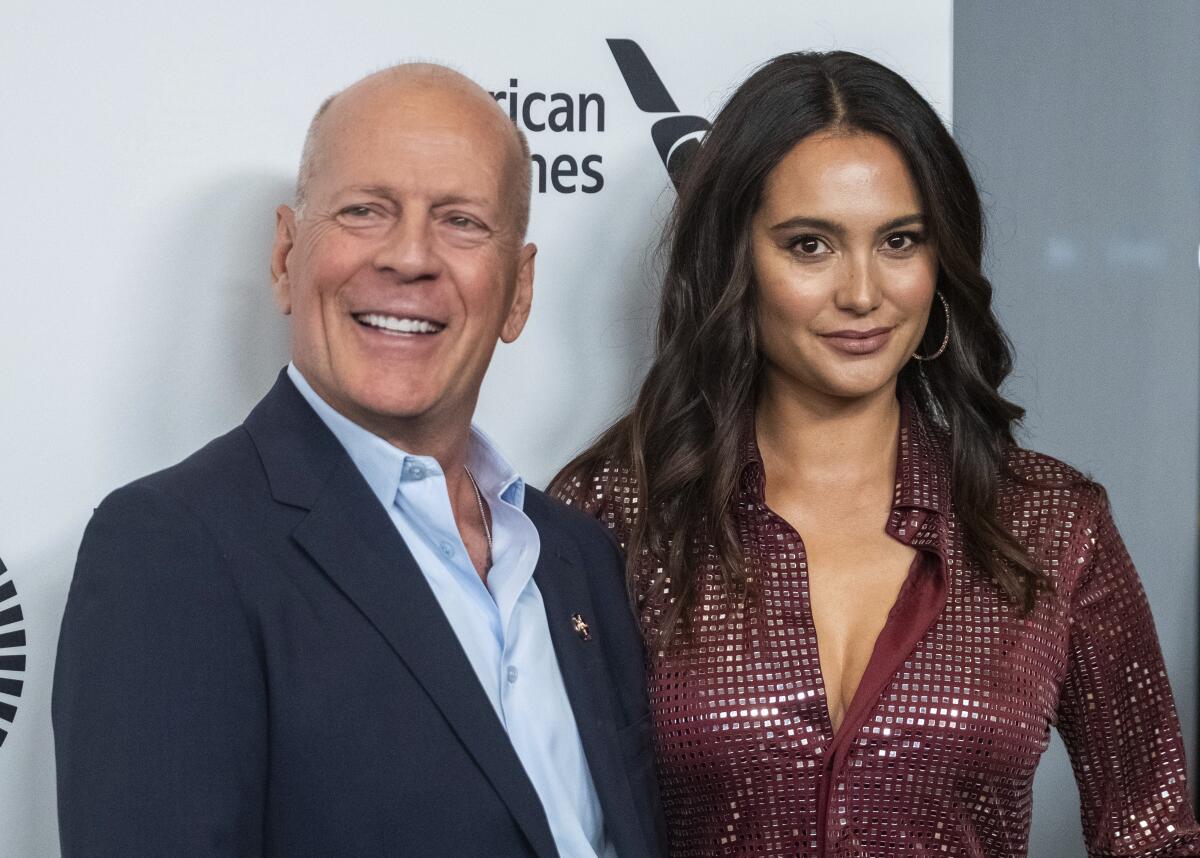









Comentează